Five years of Kim Jong Un: Are human rights getting worse?
In the fifth part of a six-part series, experts assess North Korea's continued human rights issues
NK News
December 23rd, 2016
----
This is part of NK News’ series of opinion and analysis of the first five years of Kim Jong Un’s rule.
North Korea has a justifiable reputation as being one of the world’s worst human rights violators. In pretty much every ranking, whether it be for freedom of the press, freedom of religion, or freedom of speech, Pyongyang’s government is named as a serial offender.
In many ways, North Korea was designed this way, and under the rule of Kim Il Sung it was known as one of the most repressive of the USSR-inspired Communist states. And as old comrades fell one by one to the democratic demands of their people, the DPRK remained steadfast. Now, the country notorious for its political prison camps, a pervasive cult of personality and “monolithic leadership structure” stands almost undisputed as the most restrictive on earth.
But is there any chance of Kim Jong Un’s government loosening restrictions? How has the situation changed in the last five years? And with international pressure mounting, could the situation improve anytime soon?
In the fifth part of a six-part series examining how Kim Jong Un has spent his first half-decade in power, NK News reached out to experts from across the world with three key questions on human rights under the new leader.
The following North Korea specialists responded in time for our deadline:
Greg Scarlatoiu, Executive Director at Committee for Human Rights in North Korea (HRNK)
Sokeel Park, Director of Research & Strategy at Liberty in North Korea (LiNK)
Jiyeon Ihn, President of NANK (Now! Act for North Koreans!)
Joanna Hosaniak, Deputy Director General at the Citizens’ Alliance for North Korean Human Rights
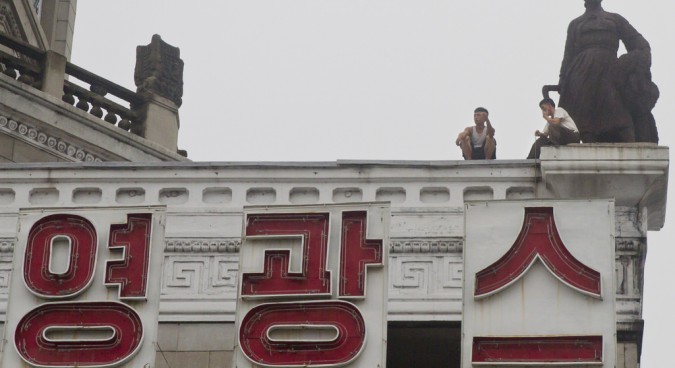
North Korea remains one of the most repressive states on earth |Photo by jamgly
1. In your opinion, has the human rights situation in North Korea improved or worsened since Kim Jong Un took power? Why?
 Greg Scarlatoiu: On Kim Jong Un’s watch, there has been no fundamental change in the regime’s policy of human rights denial, which it regrettably regards as instrumental in maintaining its grip on power. The human rights situation has not improved. Political prison camps in the border areas have been closed, due to the proximity to China and the possible bad PR. In the process of transferring prisoners to inland facilities, thousands disappeared. Other political prison camps, including Camp No. 25 in Chongjin, North Hamgyong Province, and Camp No. 14 in Kaechon, South Pyongan Province, have expanded.
Greg Scarlatoiu: On Kim Jong Un’s watch, there has been no fundamental change in the regime’s policy of human rights denial, which it regrettably regards as instrumental in maintaining its grip on power. The human rights situation has not improved. Political prison camps in the border areas have been closed, due to the proximity to China and the possible bad PR. In the process of transferring prisoners to inland facilities, thousands disappeared. Other political prison camps, including Camp No. 25 in Chongjin, North Hamgyong Province, and Camp No. 14 in Kaechon, South Pyongan Province, have expanded.We have detected disproportionate repression of women, based on satellite imagery analysis and witness testimony. Out of 1,000 women prisoners at Kyo-hwa-so (a re-education forced labor camp) No. 12 in Chongori, North Hamgyong Province, 800 were forcibly repatriated from China. Since women have taken primary charge of the survival of their families, they are the ones who face disproportionate repression.
They are the ones who get arrested at the open markets for alleged wrongdoing. They are the ones who cross the border into China, are arrested and subsequently forcibly repatriated. The ongoing purges have also added to an already egregious human rights situation.
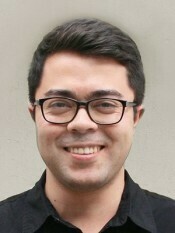 Sokeel Park: It’s definitely a mixed bag. On the one hand, one of the Kim Jong Un regime’s main priorities has been to seriously crack down on border security and the inflow of foreign information, media and illegal communications, that, of course, undermine Pyongyang’s government-mandated culture and narratives.
Sokeel Park: It’s definitely a mixed bag. On the one hand, one of the Kim Jong Un regime’s main priorities has been to seriously crack down on border security and the inflow of foreign information, media and illegal communications, that, of course, undermine Pyongyang’s government-mandated culture and narratives.The partial success of these crackdowns is a serious concern for human rights and strategies to empower the North Korean people and accelerate change inside the country.
At the same time, the trend of increasing access to economic rights seems to have continued with the regime’s gradual accommodation of entrenched marketization and decentralization of the economy. Overall, though, on any kind of international comparison, the human rights situation and government suppression of human potential in North Korea remains absolutely terrible.
 Jiyeon Ihn: In my opinion, the human rights situation in North Korea has not improved under Kim Jong Un regime. Do you remember that Jang Song Thaek, a powerful man and Kim’s relative, was brutally killed by the regime due to the lack of loyalty without a fair trial or proper legal process in 2013? That was the clear evidence of the regime’s nature and the realities of the human rights situation.
Jiyeon Ihn: In my opinion, the human rights situation in North Korea has not improved under Kim Jong Un regime. Do you remember that Jang Song Thaek, a powerful man and Kim’s relative, was brutally killed by the regime due to the lack of loyalty without a fair trial or proper legal process in 2013? That was the clear evidence of the regime’s nature and the realities of the human rights situation.Some human rights groups or activists have tried to find evidence of an improved human rights situation. I am skeptical of that view.
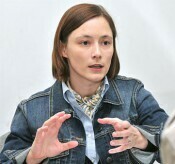 Joanna Hosaniak: Any transition in totalitarian states that do not include the democratic transition of power represents further oppression of the people, evidenced by increases in surveillance to instill fear and obedience in society, and the requirement of ‘respect’ for the new ruler.
Joanna Hosaniak: Any transition in totalitarian states that do not include the democratic transition of power represents further oppression of the people, evidenced by increases in surveillance to instill fear and obedience in society, and the requirement of ‘respect’ for the new ruler.North Korea has not been any exception to this scenario since Kim Jong Un came to power: the countermeasures against North Korean refugees, fortification systems with fences and traps on the border, and harsher penalties have translated into greater hardships for the already suffering population.
The sealing off of the border also affects common people involved in trade. Not only does the absence of any economic reforms in the country continue, but so does the diversion of resources for nuclear and military purposes. These resources are more than substantial enough to provide food security or make investments in this greatly impoverished country. Considering these factors, no positive outcomes can be expected.
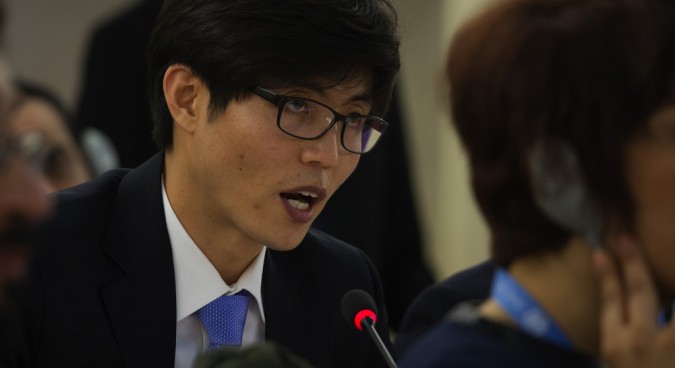
Shin Dong-hyuk, who was interned at the notorious Camp 14, testifies to the United Nations Commission of Inquiry | Photo by US Mission Geneva

2. What’s your assessment of the international community’s response to the human rights situation since the death of Kim Jong Il? What more can be done?
 Greg Scarlatoiu: Since the February 2014 UN COI report, we have seen strong resolutions issued by the UN Human Rights Council in Geneva and the UN General Assembly in New York City.
Greg Scarlatoiu: Since the February 2014 UN COI report, we have seen strong resolutions issued by the UN Human Rights Council in Geneva and the UN General Assembly in New York City.Just a few days ago, the UN Security Council held its third meeting on the North Korean human rights situation. There is no turning back, and the international community will continue to push for a resolution of the North Korean human rights conundrum.
What is needed, though, is the real, massive, fully committed involvement of large grassroots human rights organizations. They have taken up other causes, but not North Korea. Not quite yet, despite some relatively small, but commendable initiatives.
There is no turning back, and the international community will continue to push for a resolution of the North Korean human rights conundrum.
What is needed, though, is the real, massive, fully committed involvement of large grassroots human rights organizations. They have taken up other causes, but not North Korea. Not quite yet, despite some relatively small, but commendable initiatives.
 Sokeel Park: North Korean human rights is a much bigger agenda item for the international community now, but that is more coincidental with the dynastic transition rather than being caused by it.
Sokeel Park: North Korean human rights is a much bigger agenda item for the international community now, but that is more coincidental with the dynastic transition rather than being caused by it. The 2014 release of the UN Commission of Inquiry report helped set a baseline of the international community’s understanding of the seriousness of this issue and led to North Korea’s human rights situation being kicked up all the way to the UN Security Council, which previously limited its attention to North Korea’s nukes and missiles (although traditional security is still the main concern).
However, China continues to side with Pyongyang on North Korean human rights at the UN and more importantly by cooperating with the North Korean authorities to arrest and forcibly repatriate North Korean refugees.
This momentum and attention now needs to be carried through to efforts that will improve the lives of the North Korean people on the ground and accelerate the forces of change. This could include ramping up and diversifying information access programs, protecting and empowering North Korean refugees as agents of change, and pursuing other means to increase exposure to the outside world and new ideas including through people-to-people interaction and exchange.
We also need to foster the emergence of a new generation of activists for this issue from both sides of the DMZ and around the world, to bring new creativity and competencies to this cause.
 Ihn Jiyeon: The efforts of the international community have resulted in phenomenal outcomes in raising public awareness of the North Korean human rights situation, putting it into written evidence (in the case of the COI report), and putting the North Korean human rights situation on the agenda of the UN Security Council.
Ihn Jiyeon: The efforts of the international community have resulted in phenomenal outcomes in raising public awareness of the North Korean human rights situation, putting it into written evidence (in the case of the COI report), and putting the North Korean human rights situation on the agenda of the UN Security Council.However, these efforts have not achieved a substantial and feasible improvement of the North Korean human rights situation.
Consistent and continuous efforts are still needed in holding North Korea to account. More sanctions and pressures on the regime should be implemented.
 Joanna Hosaniak: Following the release of the UN Commission of Inquiry’s report in 2014, the international community has been robustly calling for the accountability of the North Korean leadership for crimes against humanity.
Joanna Hosaniak: Following the release of the UN Commission of Inquiry’s report in 2014, the international community has been robustly calling for the accountability of the North Korean leadership for crimes against humanity.The North Korean human rights issue became a regular briefing agenda at the UN Security Council.
After the Independent Group of Experts on Accountability’s report to the UN Human Rights Council, to be released in March 2017, we can expect further measures in the future that will go far beyond the call for the referral of the North Korean leadership to the International Criminal Court.
The Experts’ recommendations may translate into strong justice measures undertaken in conjunction with a call for an ICC referral that will affect the leadership and other perpetrators in North Korea.
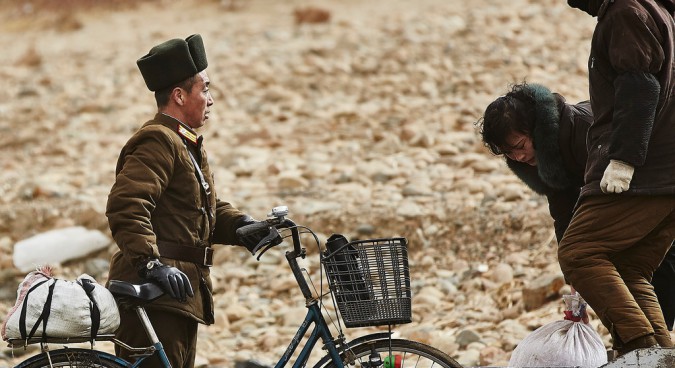
The DPRK has a well-deserved reputation as among the most authoritarian states on earth | Photo by Christian Petersen-Clausen
3. How much, as far as you know, have attitudes towards the leadership shifted inside the country since he took power? Do you think there is a higher chance of popular dissent as there was five years ago?
 Greg Scarlatoiu: The marketization of North Korea and the increased inflow of information from the outside world have continued to erode the regime’s grip on power. The overwhelming coercion, control, surveillance, and punishment exercised by the regime, combined with strict information control, have continued to enable the regime to maintain its grip on power.
Greg Scarlatoiu: The marketization of North Korea and the increased inflow of information from the outside world have continued to erode the regime’s grip on power. The overwhelming coercion, control, surveillance, and punishment exercised by the regime, combined with strict information control, have continued to enable the regime to maintain its grip on power.The Kim Jong Un regime will continue to play a game of cat and mouse, allowing some technologies to be used (cell phones, PC tablets, etc.) while trying its best to limit or entirely eliminate the social side effects of the advent of new technologies.
North Koreans are more likely to see alternatives today than they were five years ago. But transformation will be difficult for as long as the degree of social cohesion is so low, due to the regime’s surveillance, repression, and control.
 Sokeel Park: 2016’s political events in the UK and the U.S. (and in a different way, South Korea) should imbue us with a serious amount of intellectual humility when it comes to making such predictions, or indeed any predictions in political “science.”
Sokeel Park: 2016’s political events in the UK and the U.S. (and in a different way, South Korea) should imbue us with a serious amount of intellectual humility when it comes to making such predictions, or indeed any predictions in political “science.”Those countries have high levels of free expression, a lot of data on public attitudes, relatively well-refined polling models, well-understood political systems, and highly incentivised predictors. And yet we were blindsided by simple things like Brexit and the rise of Trump.
North Korea is at the opposite end of the scale, right next to zero, on all those things. So it is simply very hard to say anything precise about public sentiment or to map out timelines for political change in North Korea.
Perhaps the best we can do is look to imperfect indicators and identify relevant phenomena and trends. For instance, reports of isolated examples of resistance against officials encroaching in the economic sphere.
Also, the demographics and motivations of North Korean defectors seems to be changing, with a general trend towards people of relatively higher socioeconomic status taking the huge risk to defect, motivated by reasons that are broadly more political. These include greater awareness of different societies and frustration with the restrictions of the Nork Korea system (in contrast with escaping for reasons of sheer survival).
The barriers to organized political resistance and collective expression of political opposition are probably still too high to expect anything mass scale or sustained under current conditions, but if I were Kim Jong Un I would not be comfortable with these trends.
 Ihn Jiyeon: No. There is a slim chance of popular dissent, because the completely totalitarian regime remains unchanged and harsh control is stronger than ever.
Ihn Jiyeon: No. There is a slim chance of popular dissent, because the completely totalitarian regime remains unchanged and harsh control is stronger than ever. Joanna Hosaniak: There has never been a high chance of popular dissent in the country and there probably never will be. People’s dissent is channeled into negotiating greater space with some type of economic freedom for themselves, but not into political motivations. We cannot exclude, however, dissidence at the top echelons of the regime.
Joanna Hosaniak: There has never been a high chance of popular dissent in the country and there probably never will be. People’s dissent is channeled into negotiating greater space with some type of economic freedom for themselves, but not into political motivations. We cannot exclude, however, dissidence at the top echelons of the regime.Additional reporting: Chad O’Carroll, Oliver Hotham, Hamish Macdonald, JH Ahn, Dagyum Ji
Featured Image: Barbed wire in the sky by Valerie Everett on 2006-12-02 17:17:57
